What well-being means to us at Gubbachi
In her essay, Manimakalai Raja discusses the interlinkages between the clarity and integrity related to organizational values, and the ability to effectively implement policies related to well-being.
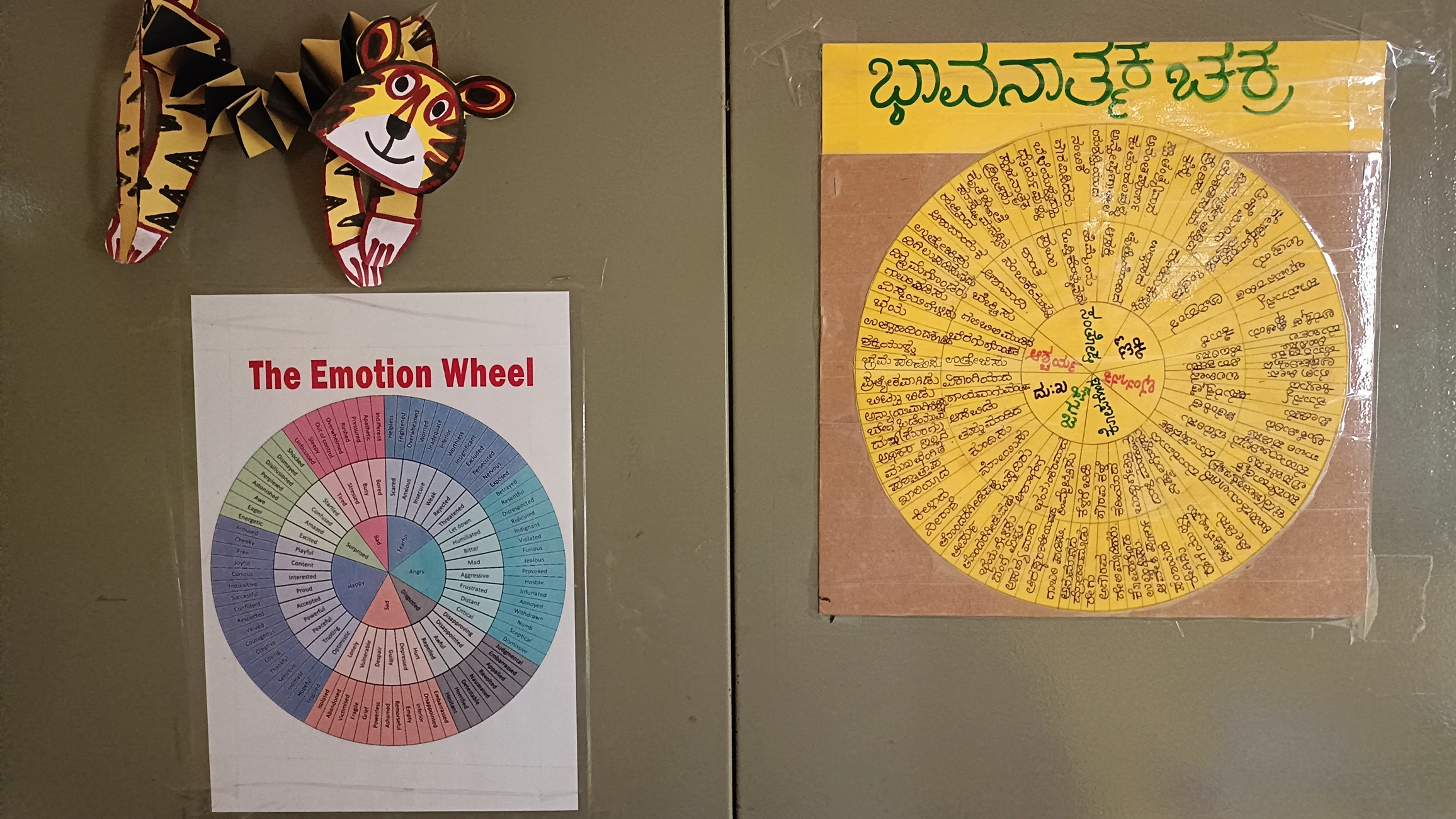
The well-being of Gubbachi is embodied in the values we believe in. We share these below.
Care and concern for the children, the communities and the Gubbachi team.
Authenticity in all our relationships with peers and children, which encourages us to be honest about our struggles.
Learning to learn from our peers, children and mentors.
Knowledge sharing between us, our teams and our programs.
However, we realized that merely putting it out there is not enough!
Understanding our values
We had started working with Pallavi Naik as an external facilitator, with the different teams in Gubbachi drawing their attention to our values and what it means to walk the talk. She now has given us part-time commitment in the role of People Development.
This has ensured continuity and greater focus on building personal capacities. Teachers have created posters of Gubbachi values to encourage children to respond to each other and their environment, keeping the values in mind.
Gubbachi’s policies that foster well-being
Leave policy: we encourage teachers to take their leave. This is not divided into casual and sick leave. It ensures authenticity. We don’t have rewards for people who have not taken leave. And we do not monetize leave not taken. We introduced a paternity leave policy, which was an oversight once we realized it.
Holidays: team members can avail 22 days of leave in a year. This is apart from the compulsory government holidays. Keeping in mind the fact that teachers at Gubbachi do not enjoy the benefits of long summer holidays like other educational institutions, (because summer is the only time children do not migrate back to their hometowns) teachers are encouraged to take turns to take planned leaves during summer.
Short-term, critical, need-based advances: These are provided to employees with criteria attached. This measure is based on the understanding that borrowing from the market in an emergency is a financial burden to be avoided.
Educational support for families: Where available and feasible, we encourage employees to enrol their toddlers in our ECCE program.
Zero tolerance of violence in the workspace
Prospective employees are informed during the interview that Gubbachi will terminate (after two warnings) employees who are verbally or physically violent with children or colleagues. Combined with the values of the organization, compassion is automatically built into its ethos – compassion for the child, an understanding of her difficulties, and thereby her parents’ struggles.
However, it’s not enough if we specify a policy like this. It must be followed up with capacity building to help teachers with ways to practice it in class. They work in mixed-age classrooms. The children come from the most disadvantaged backgrounds.
How do I bring about discipline without yelling at the child or giving him a whack? How do I foster an environment of care and concern among children who are at the receiving end of violence in their lives outside school? How do I help a child understand that she cannot bring violence into the classroom, to respect the sanctity of a fear-free space?
Workshops on classroom management, and mindfulness have benefitted teachers devise helpful techniques. These support children who take time settling down and who are disruptive.
Our values in action that foster well-being
Community orientation: As a strategy, Gubbachi identifies members from the community to be a part of the team. This person is the go-to person for any issues related to the community. Late one night, a community member developed chest pain. His family reached out to a Gubbachi team member for help. The patient was immediately taken to the designated hospital. It was ensured that appropriate treatment was given. There have been many cases of women going into labour late in the evening, and it was the Gubbachi team that ensured safe passage to the hospital with proper care.
Being available as a team to respond to needs: The team knows we are there to support them in times of need, however late in the night. Late one evening, Priya’s 6-year-old daughter caught her finger in the door while playing at home. The finger was hanging by the skin. When she took her to the nearby hospital, they were asked to deposit a large amount of money that she did not have. She came back home with the child. Priya’s colleague got in touch with a founder and shared the problem. The money was transferred to the teacher’s account late in the night and the child got to the hospital immediately.
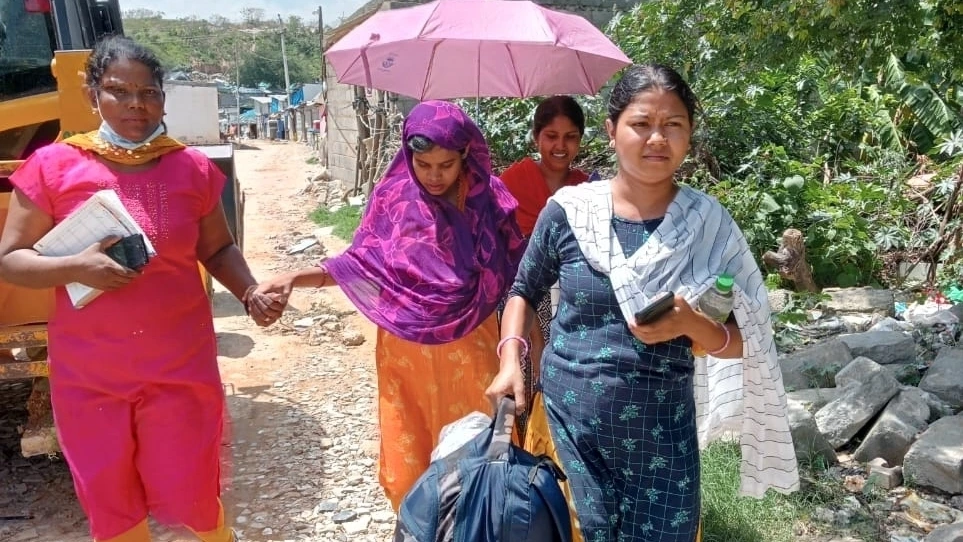
Well-being with Viridus
Four of us from the founding team attended the well-being program offered by the Viridus team. The first one was an online one during the Covid years. This one focussed on the self.
It was an opportunity for us to examine our mental models and relook some of our beliefs. What stayed with me was the need to be compassionate with myself – the understanding that my well-being will enable well-doing.
Reflecting on two shifts I made in my beliefs: I take pride in my work. My belief is that everyone takes pride in their work. Therefore, I do not believe in policing. I also believe that people will fulfil their responsibilities to the best of their abilities. It would bother me if outcomes were not up to my expectations.
I now understand that Gubbachi team members probably take pride in other things, in things other than work. So now, I state my expectations clearly. I follow-up with the team till outcomes are to my satisfaction.
If I have a problem, I will state it. I will actively seek support to work on it. Therefore, I believe that others in the team will also be open about their problems. So, when I ask people if there is any problem, and they say no, I believe them.
I now understand that people see help-seeking behaviour as a sign of weakness. If I truly want them to be open about their struggles, I realize now that I must assure them that I will not judge them.
The second well-being program in September 2022 with Viridus: This was an in-person one. These sessions gave us an opportunity to reflect on our vision, mission and values. These also facilitated clear thinking about our policies and practices.
Some of our reflections: If we value care and concern, how do we create a safe space? How can the environment be one of acceptance and non-judgement, where people can share their struggles and anxieties?
If we value authenticity, how do we create a brave space where the team can speak its mind? What could be an impediment in creating a brave and safe space?
Some micro-shifts that have become part of Gubbachi’s culture
Rewording our mission: To empower marginalized children and underserved families in urban areas by providing access to quality education, primary healthcare, and vital documentation: bridging the gap to economic stability, social equality, and a life of dignity and opportunity.
Reworking some policies: Differential work timings depending on the place of work – e.g., the teaching team in government schools works from 9 a.m. to 5 p.m. The community learning centre works from 8.30 a.m. to 4.30 p.m. The community team has different timings.
We have added maternity benefits for employees who have moved out of the ESI policy.
Decentralization based on project and team needs is now the acceptable norm. The only caveat is that changes are communicated by Program Leads. This ensures that everyone is aware of what is being transpired to avoid surprises.
Annual Founding Day: Usually, our Annual Founding Day celebration included workshops for the whole organization. This year, the team requested for space to intermingle and share non-purposive time together.
Capacity building workshops are a regular feature through the year. Taking care of well-being meant that we have an ear on the ground. It also means that we are able to respond to reasonable needs that are expressed.
The Annual Founding Day helped the teams to relax together. It also built some memories of a fun time spent. It created bonding within and between the teams as well.
Check-ins: Every meeting, every day, starts with check-ins about how people are feeling. What started out as a one-word sharing has now metamorphosed into a sentence of feeling and why.
Initially it took time for all of us to talk about our feelings. This was simply because we are not used to being in touch with our feelings. So, all the teachers in the eight centres spent a weekend discussing and translating the comprehensive emotion wheel into Kannada.
Now adults have moved to sharing precise and nuanced emotions. Teachers have taken it into the classroom. Children now share their feelings at the start of the day.
This simple act of sharing present feelings has established close bonds between children and teachers. It has ensured an air of compassion in the classroom.
It sets the mood and context for the rest of the day. It also helps everyone become aware about the others’ feelings.
Here are some heartwarming ‘feeling’ sentences from the children:
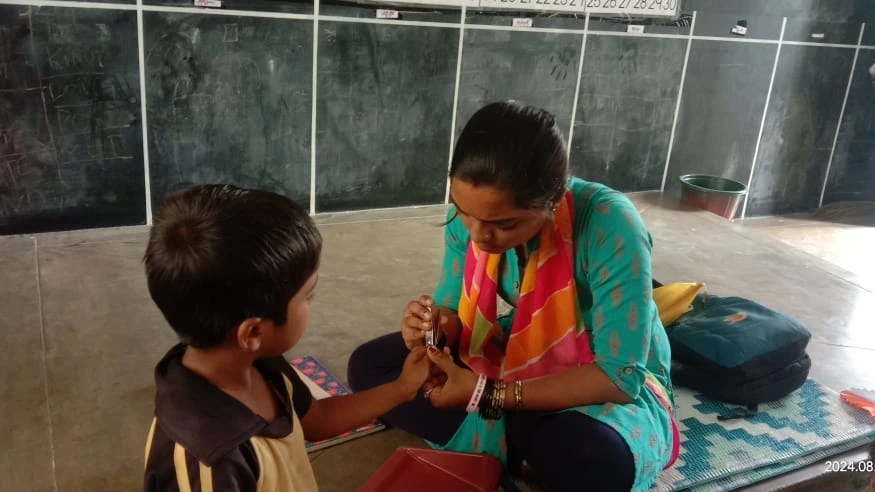
“I am feeling sad because my milk glass fell into the big water drum.” “I am feeling happy because my father bought me new shoes.” “I have no tension because my miss has come to class today” (her teacher was on leave for a few days before this). “I am feeling sad because my father beat my mother.”
Care and concern as a value at Gubbachi ensures that well-being and dignity go hand in hand. We believe that well-being results in well-doing. We are working to create a culture of respect and compassion not only among the team, but among the children and the community as well.

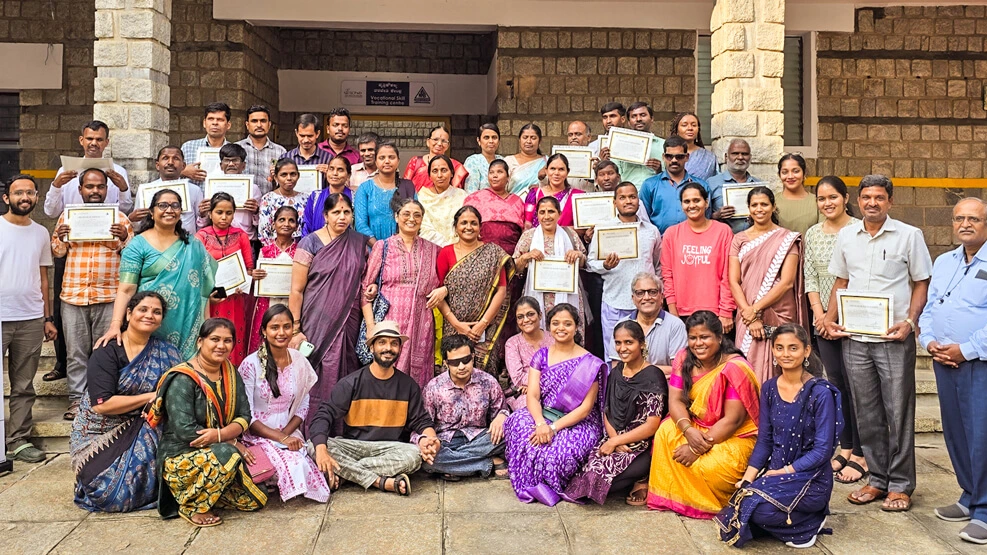
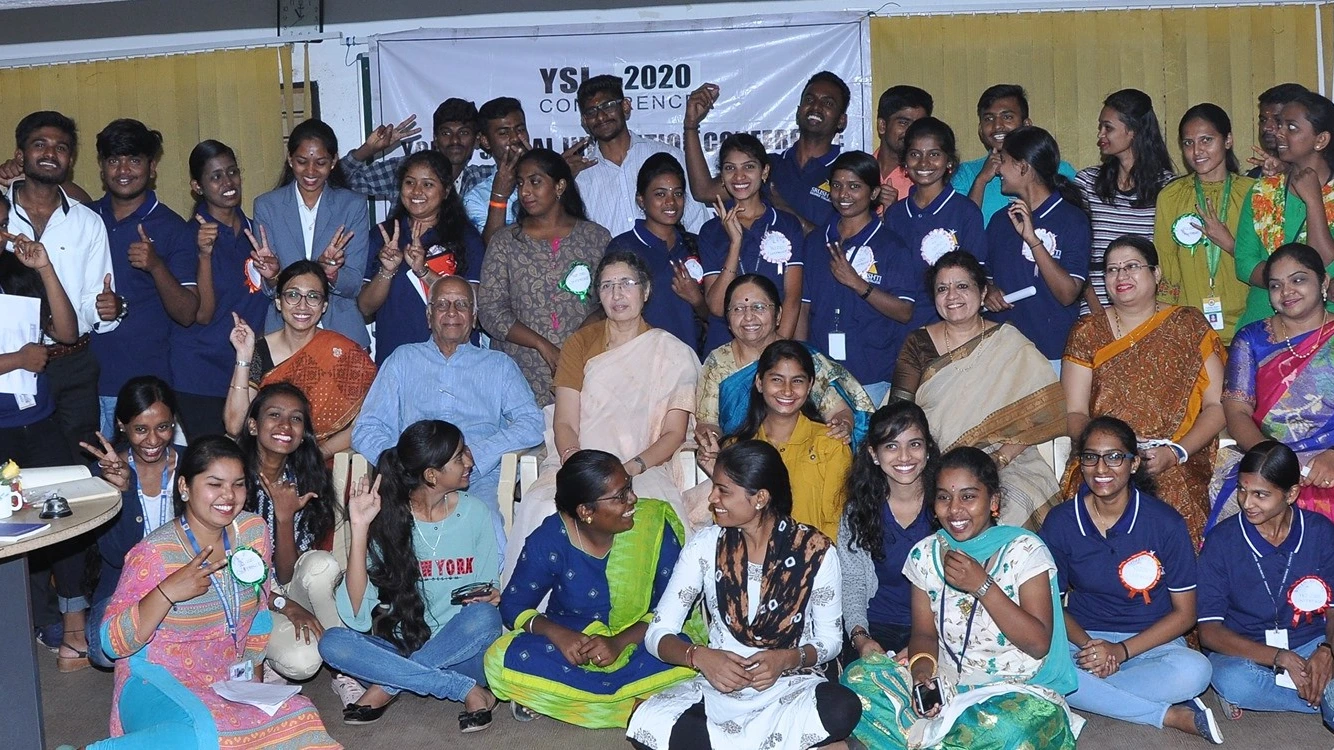
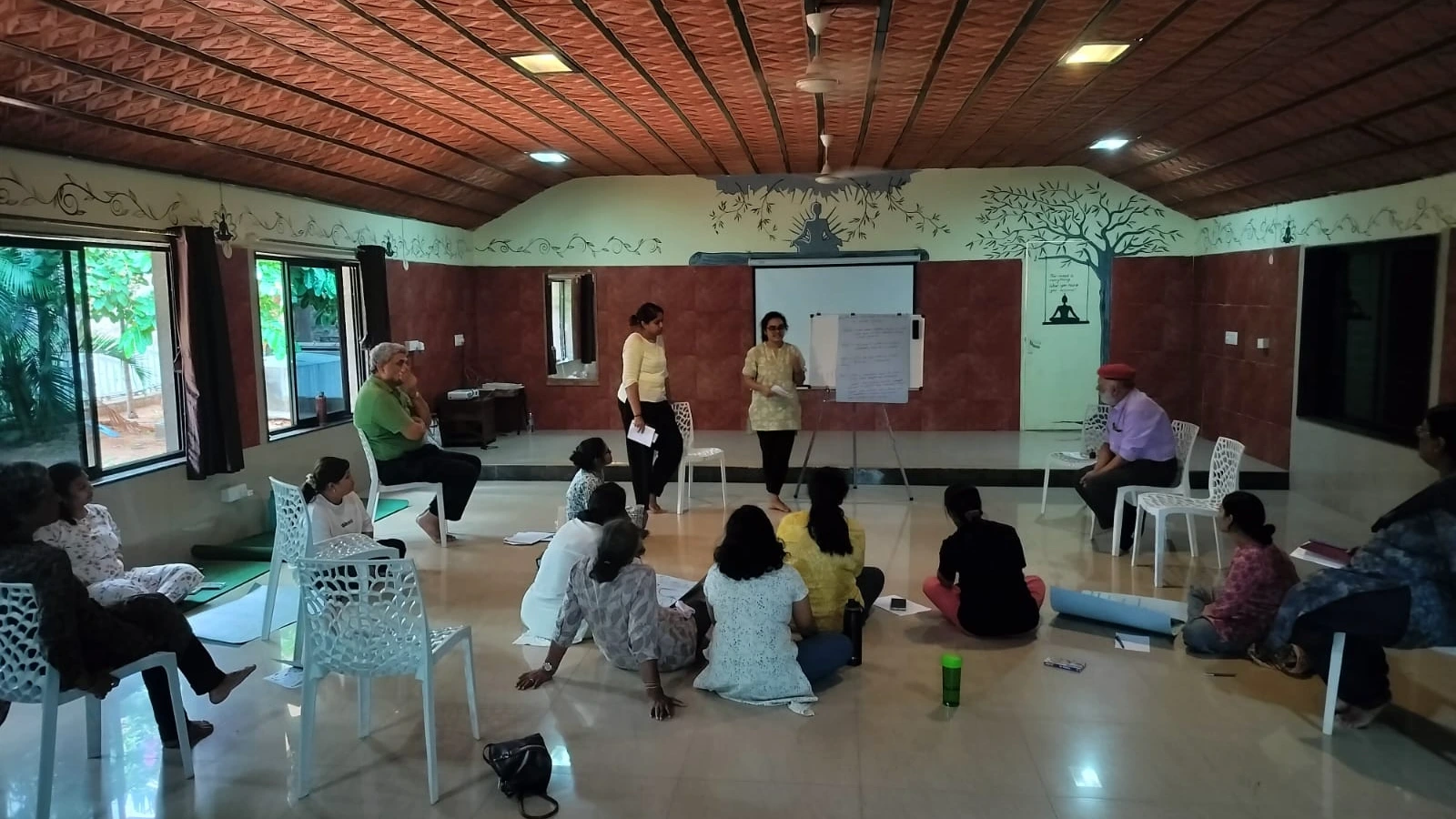
No approved comments yet. Be the first to comment!